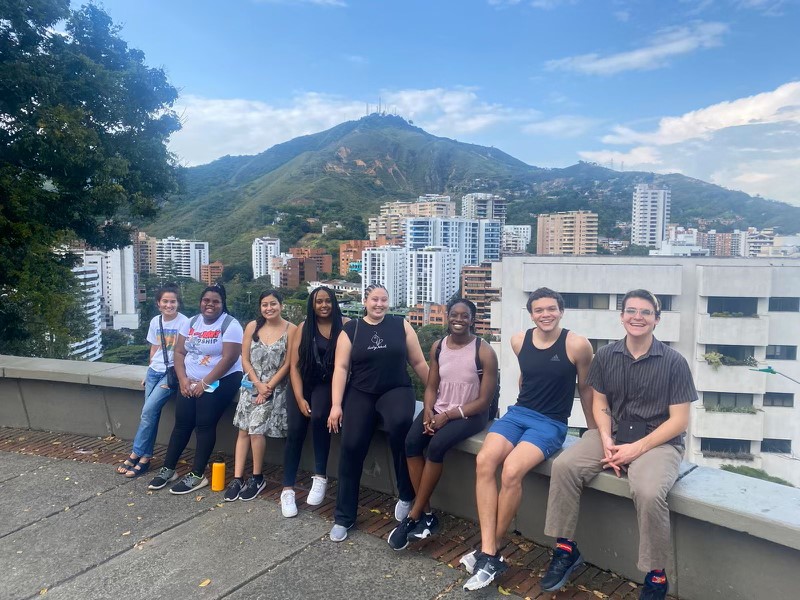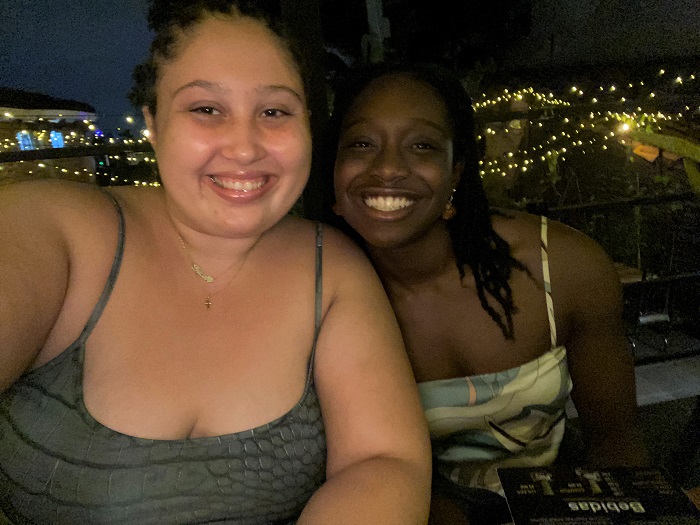Written By Amara Payne (The George Washington University), Student Correspondent for CET Colombia, Spring 2022
Walking through the streets of Cali. feels like a breath of fresh air. Sitting in my first day of orientation, new people, new faces, and new sounds surround me as I take in our segment for the day; Safety in Cali. It doesn’t seem very different from safety in my own city, keep your valuables away, stay vigilant, and always be aware of your surroundings. Our instructor, David, proceeds to tell us we all could pass as Colombian, some of us Black, some white, so we shouldn’t have much trouble fitting in as long as our Spanish is passable. We proceed into the world, trying to fit in, not stand out, and to my surprise we’ve done well.

As the days have progressed we’ve taken a brief dive into Colombian history, more importantly learning the role of African identity, and what it means to be una persona Afrodescendiente here. And in less than 2 weeks, I have a new perspective on what it means to be Black. Growing up mixed, and particularly ethnically ambiguous, I’ve always been met with the “what are you?” and the “but where are you really from?”. My Blackness growing up in the South was strong and well defined, a part of my identity that I’ve always felt connected to, more so than being white. It didn’t help that I went to a school with all white peers where I was constantly bombarded with racism, to the point where I felt as if the white people I knew, despite being as much a part of them as I was of my Black community, didn’t want to see me as a part of them at all.
However, in Colombia, what it means to be Black is different. Blackness here is defined by color, not by lineage. Though Colombia’s heart beats to the rhythm of cumbia y currulao, and everyone eats meals derived from the haciendas, como sancocho, tajadas, y pollo guisado; in this country, proximity to whiteness is what identifiers are based on. This means that unlike the US with the history of the one drop rule, historically in Colombia, the lighter your skin, the more likely you are to trade being morena for the title of mestiza or indigena, to simply facilitate life.
What is most important to note is that this world is changing. Afro-Colombians are gaining more and more recognition for their contributions to Colombian culture as a whole, and as it becomes more and more okay to just exist being Black. Blackness has always been a part of Colombia, Black people her backbone, y por fin, mi gente puede estar orgulloso de sus raíces.
